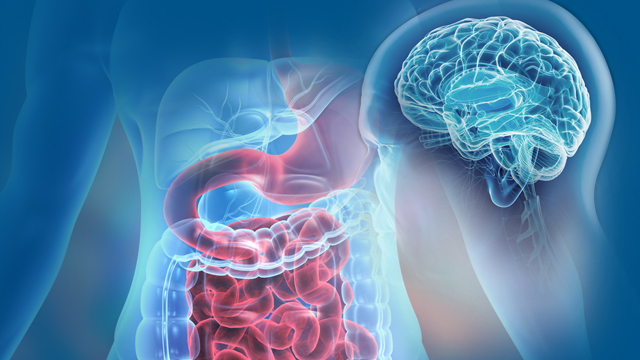Probiotic Combination Reveals Differential Effects on Psychological and Gastrointestinal Symptoms in IBS
Jan. 10, 2023 - Eden McCleskeyA recent study from Houston Methodist gastroenterology researchers sheds surprising new light on the interplay between the stress response, immune activation and development of psychological and gastrointestinal symptoms among people with irritable bowel syndrome (IBS).
The clinical trial, which aimed to study the effects of probiotic supplementation on patients with IBS and anxiety/depression, revealed that gastrointestinal symptoms were closely linked with stress while psychological symptoms were closely linked with inflammation.
"By studying the response, in IBS, to probiotic strains targeting either the gut or the central nervous system, we were able to differentiate between impacts on stress-related effects on gut symptoms, mediated by cortisol, and on anxiety and depression, mediated by pro-inflammatory cytokines," says Dr. Eamonn Quigley, chief of Gastroenterology at Houston Methodist.
Researchers recruited 40 patients with IBS and mild to moderate anxiety or depression and a control group of 57 asymptomatic people with low to moderate stress. The IBS patients received a combination probiotic of Bifidobacterium longum strains 1714 and 35642 — thought to attenuate the stress response and reduce IBS symptoms, respectively — for eight weeks, with an eight-week washout period.
IBS symptoms, psychometric measures, salivary cortisol awakening response and plasma inflammatory biomarkers were assessed every four weeks.
"The time course of the trial was especially revealing," says Dr. Quigley. "The beneficial effect of the treatment on IBS symptoms was transient and aligned with regulation of the cortisol awakening response, while the beneficial effect on anxiety and depression far outlasted the treatment period and paralleled an anti-inflammatory effect, as indicated by a reduction in circulating levels of TNF-alpha, a critical pro-inflammatory cytokine."
The findings implicate stress as a major driver of IBS symptoms and lend credence to a growing body of literature suggesting that depression promotes inflammation.
"On the one hand, it supports the whole idea of the interaction between the brain and the gut in IBS," says Dr. Quigley. "On the other hand, it suggests that there may be somewhat different drivers of the GI symptoms and the central nervous system symptoms in IBS, which previously we might have lumped in together with stress."
Stress is a known exacerbator of IBS symptoms, and anxiety and depression are common co-morbidities. About 50-90 percent of IBS patients also have associated psychiatric ailments.
"The reason we focused on this population is because of its high prevalence and its significant impact on patient outcomes," explains Dr. Quigley. "Patients with IBS and anxiety or depression by definition have worse IBS."
In the study, subjects with IBS had higher baseline morning cortisol levels and a blunted cortisol awakening response compared to the non-IBS stress control group. The same profile, indicative of hypothalamus-pituitary-adrenal (HPA) axis dysregulation, has previously been associated with clinical depression, post-traumatic stress disorder, alcohol dependence and a variety of psychiatric and neurological ailments.
"The good news is, the probiotic treatment we used in this trial restored patients' cortisol response and produced parallel and clinically significant reductions in overall and individual IBS symptoms," Dr. Quigley says. "There is clearly a need for a randomized controlled trial to further understand the potential of probiotic therapy as a treatment for IBS."
The study was published in Neurogastroenterology & Motility Sept. 30.


